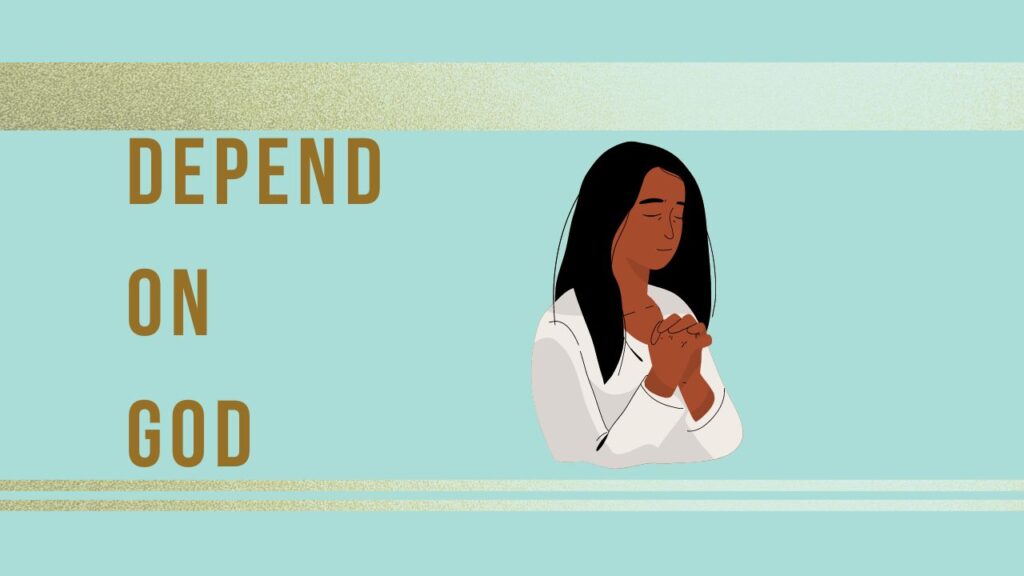
Contents
Depend On God
In a world that celebrates self-sufficiency and independence, depending on a higher power may seem paradoxical or outdated to some people. Yet dependence upon God (or another higher power) has long been at the core of human spirituality and philosophy; its impact reaches far beyond religious boundaries – providing comfort, meaning, and strength to individuals across generations.
Comfort and Solace:
At times of hardship, uncertainty, or grief, turning to a higher power provides immense comfort. Belief that there is a benevolent force supporting one can ease feelings of isolation and despair while understanding that struggles don’t need to be faced alone but with an omnipotent and caring entity alongside us. By surrendering one’s worries to an outside source they become freed up so individuals can face life’s challenges with greater resilience.
Finding Purpose and Direction:
Relying on a higher power often provides individuals with a sense of purpose and direction in life. Believers view their lives as part of a divine plan, wherein their actions and experiences contribute to something bigger. This perspective gives everyday actions meaning, helping individuals live their core values more fully. Seeking guidance from higher powers also can aid decision-making process that resonate with their spiritual beliefs.
Cultivating Humility and Gratitude:
Recognizing our dependence on God fosters both humility and gratitude. Being aware that there are forces beyond human control encourages an acceptance of limitations while appreciating life’s mysteries. Embracing dependence also enhances relationships by instilling empathy and understanding among its participants, leading them to attribute their blessings and achievements back to the divine – leading them towards positivity and greater happiness in their daily lives.
Strength in Adversity:
One of the many wonderful aspects of depending on God is His ability to provide strength during times of difficulty. Many find comfort in their faith as it buoys them through trials, providing courage and resilience. Belief that challenges present opportunities for growth serves as a motivator, helping individuals face difficulties head-on with resolve; often inspiring others by spreading cheer and building community unity.
Balance Between Effort and Surrender:
Dependence on a higher power doesn’t negate personal effort; rather, it encourages an effective balance between striving and surrender. Individuals work towards their goals with diligence but must recognize that at some point control over outcomes must be given up in exchange for trusting that all aspects of the journey will unfold according to an ancient divine wisdom that’s beyond human understanding.
Reducing Religious Boundaries:
Note that dependence on a higher power transcends all religions; people from diverse faiths and belief systems find common ground in this idea, showing its universal appeal. Through prayer, meditation or other practices individuals seek an interaction with a transcendent reality that imparts deeper meaning into their lives.
Dependence on a higher power can provide stability in an increasingly unpredictable world, offering hope, purpose, and interconnection in one holistic view of existence. Relying on such forces doesn’t reduce personal agency; rather, it increases it by aligning actions with an overarching cosmic order.
At its core, faith remains deeply personal. For those who choose this path of reliance upon God as part of their lives journey, relying upon them can be seen as an exercise in reflection and an ongoing dialogue between themselves and the divine. When people embrace this concept it can provide strength, comfort, guidance and a profound reminder that life’s tapestry connects us all in some way or another to something greater than ourselves.
Related Post – Depend On God, Depend On God
How to Light Incense: A Simple Guide to Enjoying Aromatic Moments









